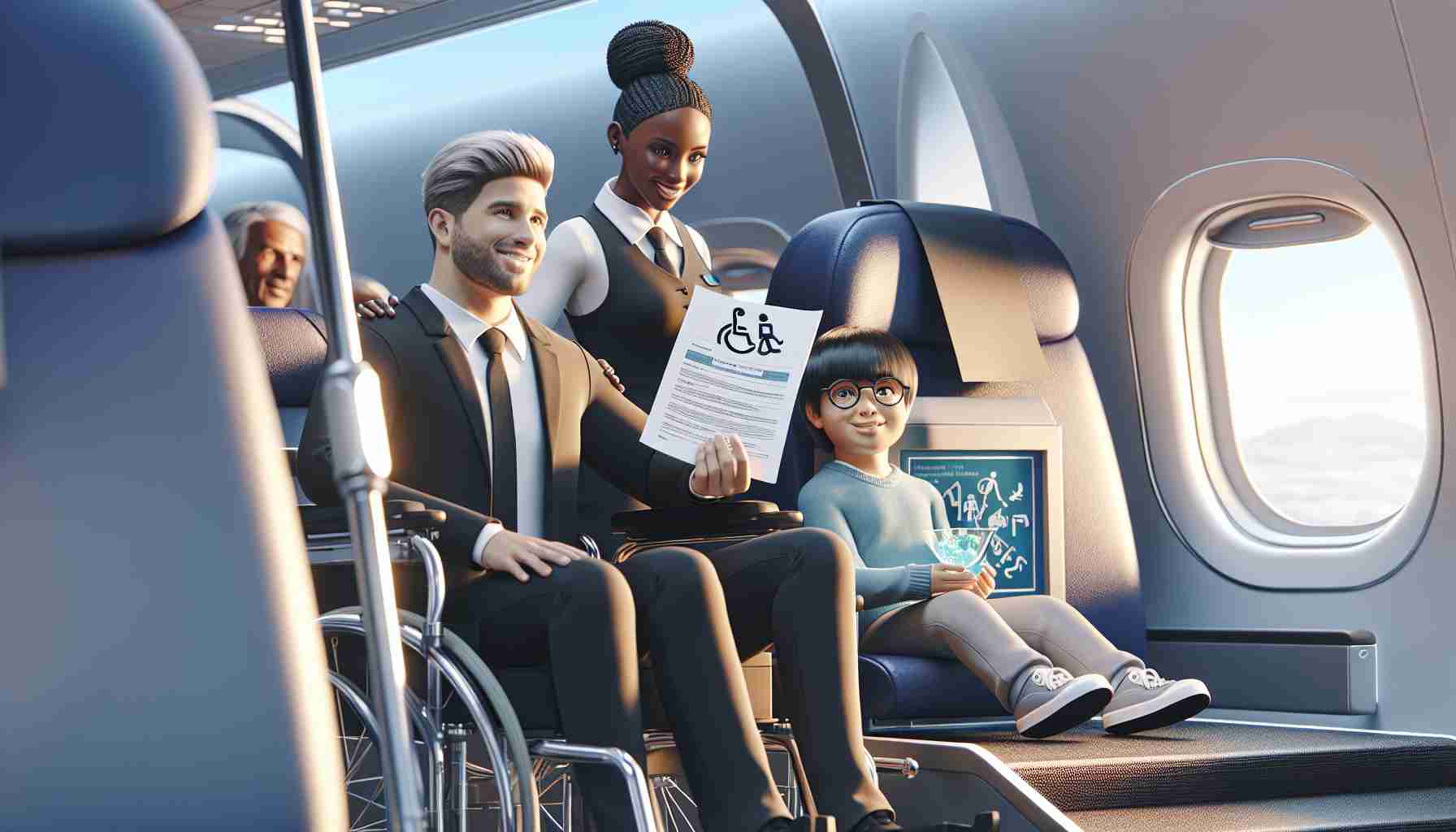Airline Fined $50 Million for Mistreatment of Disabled Passengers
A major airline faced a hefty $50 million fine following allegations of mishandling disabled passengers, resulting in injuries. While the airline claimed improvements in wheelchair handling, concerns linger over the treatment of passengers with disabilities during air travel.
Challenges Faced by Wheelchair Users During Air Travel
The existing Air Carrier Access Act (ACAA) falls short in protecting the rights of passengers with disabilities, leading to frequent transfers and potential risks during boarding and disembarkation. Instances of mishandling, damaged equipment, and lack of proper assistance persist, raising uncertainties for wheelchair users while flying.
Advocating for Change in Air Travel Standards
Efforts are underway to push for enhanced safety measures and dignified treatment for passengers with disabilities. Initiatives like the Air Travel Initiative aim to collaborate with airlines and advocacy groups to improve communication, training, and assistance for wheelchair users, ensuring a smoother and more respectful air travel experience.
Urging for Comprehensive Solutions Beyond a Single Airline
Addressing the systemic issues in air travel assistance demands a collective effort beyond penalizing individual airlines. By advocating for stricter regulations, improved training, and better service standards, organizations like the United Spinal Association strive to transform the air travel landscape for passengers with disabilities, guaranteeing a safe and dignified journey for all.
Enhancing Air Travel Rights for Passengers with Disabilities
In the realm of air travel rights for passengers with disabilities, there are crucial aspects that demand attention beyond the previous discussions. Let’s delve into some important questions and explore the associated challenges and controversies that stem from efforts to enhance the travel experience for individuals with disabilities.
Important Questions:
1. Are there specific guidelines in place to ensure that airlines prioritize the needs and safety of passengers with disabilities?
2. How can technological advancements be leveraged to improve the overall air travel experience for individuals with disabilities?
3. What role do advocacy groups play in influencing policy changes and implementing new standards to protect the rights of disabled passengers?
Key Challenges and Controversies:
1. Ensuring Compliance and Enforcement: One of the primary challenges lies in enforcing existing regulations and ensuring that airlines adhere to the standards set forth for accommodating passengers with disabilities.
2. Cost Considerations: Implementing comprehensive solutions to enhance air travel rights for individuals with disabilities may pose financial challenges for airlines, raising debates on resource allocation and feasibility.
3. Accessibility vs. Convenience: Balancing the need for accessibility with operational efficiency can lead to debates on the extent of accommodations provided to passengers with disabilities and the impact on overall travel experiences.
Advantages and Disadvantages:
– Advantages: Enhanced air travel rights for passengers with disabilities can lead to a more inclusive and respectful travel environment, fostering independence and accessibility.
– Disadvantages: Stricter regulations and increased standards may result in higher ticket prices or operational complexities for airlines, potentially affecting the overall travel industry.
When considering the evolution of air travel rights for passengers with disabilities, it is crucial to acknowledge the multi-faceted nature of the challenges involved and the potential trade-offs between enhanced protections and practical limitations faced by airlines.
For further insights into advocacy efforts and policy developments in this domain, you can explore relevant information on the U.S. Department of Transportation website.
Remember, the journey towards enhancing air travel rights for passengers with disabilities requires ongoing collaboration, advocacy, and a commitment to creating a more inclusive aviation landscape for all individuals.
 Chinese Titan BYD Charges Past Tesla in Europe’s Electric Arena
Chinese Titan BYD Charges Past Tesla in Europe’s Electric Arena  How Apple’s Dance with China’s Market Shifts the Global Tech Landscape
How Apple’s Dance with China’s Market Shifts the Global Tech Landscape  The Spark Behind Schenectady’s Electrifying Weekend: A Deep Dive into the Future of Cars
The Spark Behind Schenectady’s Electrifying Weekend: A Deep Dive into the Future of Cars  The Unseen Journey: How Aurora’s Self-Driving Trucks Are Paving New Roads in Freight
The Unseen Journey: How Aurora’s Self-Driving Trucks Are Paving New Roads in Freight  Epic Games’ Bold Move: Revolutionizing Developer Revenue with New Policies
Epic Games’ Bold Move: Revolutionizing Developer Revenue with New Policies  Lucid Group’s Wild Ride: Can Luxury EVs Thrive Amid Economic Uncertainty?
Lucid Group’s Wild Ride: Can Luxury EVs Thrive Amid Economic Uncertainty?  BYD’s Record-Breaking Feat: Revolutionizing India’s EV Landscape with Sealion 7
BYD’s Record-Breaking Feat: Revolutionizing India’s EV Landscape with Sealion 7  The Surprise Tesla Tax: Washington State’s Bold New Move Shakes EV Landscape
The Surprise Tesla Tax: Washington State’s Bold New Move Shakes EV Landscape  World’s Largest Car Carrier Sets Sail: A Game-Changer for Electric Vehicles
World’s Largest Car Carrier Sets Sail: A Game-Changer for Electric Vehicles 